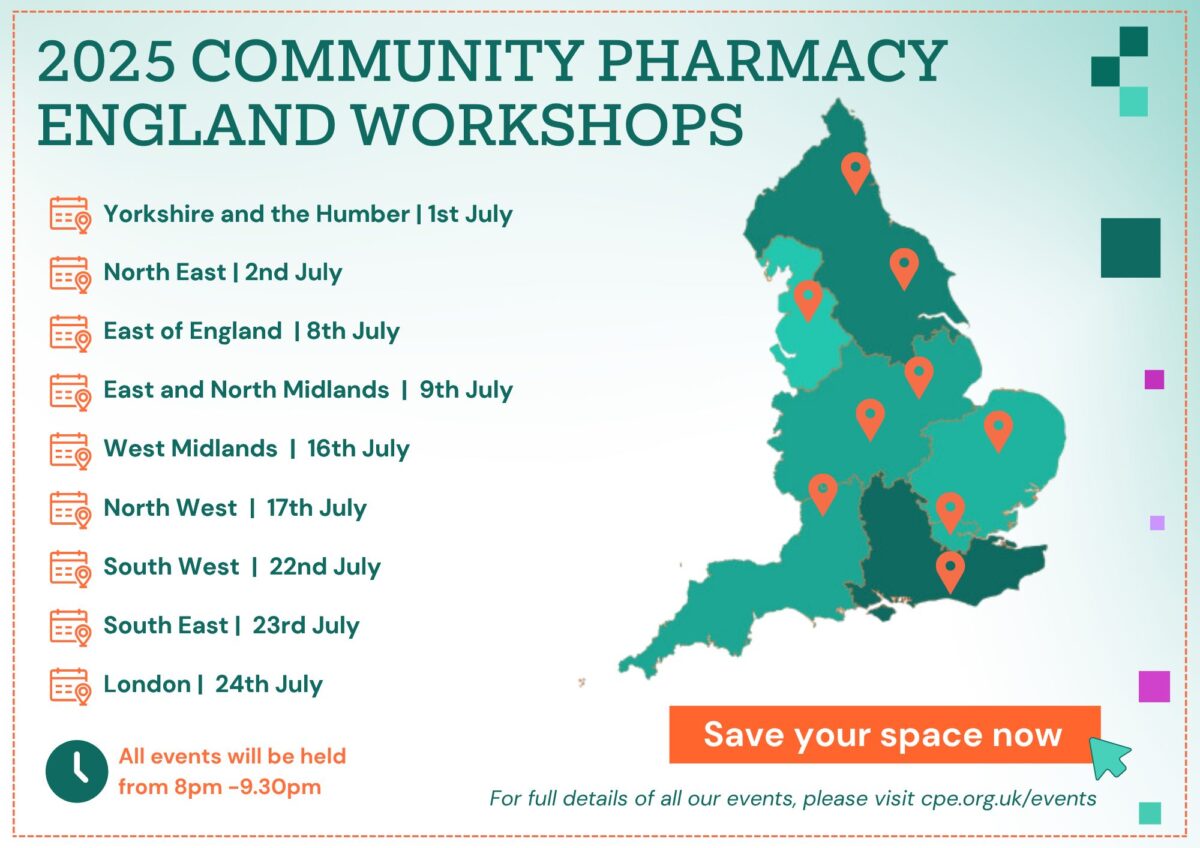HRT PPC: Guidance and FAQs now available
Ahead of the Government’s introduction of the new Prescription Prepayment Certificate (PPC) for hormone replacement therapy (HRT) products on 1 April, PSNC has published guidance and FAQs to help pharmacy teams to implement this new policy.
Background and Latest Position
From 1 April 2023, patients who are not already exempt from NHS prescription charges will be able to purchase an annual HRT PPC for the cost of two single prescription charges. This is in line with Government policy to make HRT medicines more accessible and it is a positive development for patients – PSNC supports this principle and had argued that these medicines should be free.
But NHS systems have not kept pace with policy, meaning the certificate is launching without the IT in place to support it. PSNC has been clear that this is totally unacceptable, including raising this with Ministers directly and warning them that introducing the PPC without this infrastructure risks causing confusion for some patients and adding to the burden for pharmacy teams.
Government recognises the challenges but is determined to move forwards with the policy. DHSC has recognised the impact this will have on pharmacies and we are still pressing for appropriate financial compensation. We have also sought guidance for GPs, and now published our own guidance to try to make the launch go as smoothly as it can for pharmacy teams.
PSNC Briefing 008/23: FAQs to support DHSC guidance on the new HRT PPC (updated 5 April 2023)
Ahead of the launch of the HRT PPC, PSNC Chief Executive Janet Morrison said:
“The HRT PPC being introduced by Government next month is a positive development for patients – indeed, we argued that these medicines should have been made available for free – but NHS systems have not kept pace with policy, meaning the certificate is launching without the IT in place to support it. This is totally unacceptable: community pharmacies cannot on the one hand be subjected to funding cuts, but on the other hand be expected to keep picking up the pieces when DHSC and the NHS launch policies without having the infrastructure in place to effectively implement them.
“We have warned Ministers directly – both by writing to them and in meetings – that rolling out the HRT PPC at this point risks causing confusion for some patients and that it will add to the burden on pharmacies, but to no avail. Government recognises the challenges but is determined to move forwards with the policy.
“DHSC has recognised the impact this will have on pharmacies we are pressing for appropriate financial compensation for pharmacy owners. We have also sought guidance for GPs, and now published our own guidance to try to make the launch go as smoothly as it can for pharmacy teams.”
How the HRT PPC will work
The HRT PPC can be used against any DHSC listed HRT medicine licensed for the treatment of menopause. The HRT PPC will be available to purchase through the NHS Business Services Authority (NHSBSA) website or from selected pharmacies (i.e. just those pharmacies who choose to provide them).
To support pharmacy teams with the roll-out of the HRT PPC, this week the Department of Health and Social Care (DHSC) has published their guidance document on the NHSBSA website. The guidance outlines the changes taking place and how this will impact on the issuing and dispensing of prescriptions for HRT products.
Separately to this, to support pharmacy teams PSNC has published a briefing containing supplementary information and a comprehensive set of FAQs. These are based on our understanding of this policy from discussions with DHSC. Our guidance covers a whole range of information from the scope of the HRT PPC through to changes to NHS stationery and processing of EPS vs paper FP10 prescriptions for listed HRT medicines. It also contains a number of illustrative diagrams and flowcharts to help clarify the procedures.
Key Issues Identified
As a consequence of its limited scope, a patient with an HRT PPC will continue to pay the prescription charge for any other (non-HRT) medicines (unless another exemption reason applies). While GPs will be required to write HRT items on separate prescriptions, on occasion both an HRT medicine and another item will be prescribed on the same prescription – a ‘mixed’ prescription. This presents a problem for a patient who has an HRT PPC and the for the pharmacy because a prescription cannot be processed as both ‘exempt’ and ‘paid’ within the NHS prescription processing and pricing systems.
Regulations have been put in place seeking to avoid such ‘mixed’ prescriptions and to give options to contractors/pharmacist facing ‘mixed’ prescriptions presented by patients with an HRT PPC. DHSC is advising pharmacies to refuse to dispense ‘mixed’ prescriptions to patients with an HRT PPC, unless the patient needs one or more of the prescription items urgently. This may be appropriate due to the problems and potential financial risks with processing of ‘mixed’ prescriptions for patients with an HRT PPC.
We have made sure that DHSC is well aware of these problems and a paragraph on page 12 of its guidance states:
6.1 The Department recognises that upon launch, the HRT PPC will require some workarounds for pharmacy contractors (including other dispensary staff) and that there will be associated costs until solutions are in place. For example, workarounds for mixed prescriptions issued in error in the absence of a digital solution to automate the process. This guidance outlines the options for pharmacy contractors in different scenarios and the workarounds that have been put in place. We will continue to work with the sector seeking to mitigate and minimise the impact on pharmacy teams.
PSNC warned the DHSC at the earliest opportunity that suppliers need advance notice to better fit new IT development plans into their roadmaps. The Government’s digital solution involves prescribing systems automating the issuing of listed HRT medicines as single-item prescriptions, but DHSC has not yet confirmed the associated completion timescales. PSNC remains concerned that ‘mixed’ prescriptions may continue for some time. DHSC has also recommended development work on PMR systems be completed ahead of HRT PPC implementation date of 1 April 2023 to introduce HRT PPC categories within PMR systems.
As guidanace passage 6.1 (quoted above) makes clear, the Department recognises that there will be associated costs for pharmacy owners until IT solutions are in place. We are in discussion with them about appropriate financial compensation for this.
PSNC’s Position and Letter to Minister
PSNC is supportive of the Government’s decision to make HRT medicines more accessible to patients at reduced cost, but we have put a strong case to Ministers that HRT PPCs do not work within existing NHS prescription processing and pricing systems, instead suggesting that enabling HRT items to be provided for free would be a more cost-effective solution. This included writing to Maria Caulfield MP, Minister for Women’s Health Strategy, as early as November 2022.
PSNC’s Letter to Minister for Women’s Health Strategy (November 2022)
Guidance and FAQ briefing
The DHSC guidance has been published on the NHSBSA website:
PSNC has published a briefing containing supplementary information and FAQs:
Briefing 008/23: FAQs to support DHSC guidance on the new HRT PPC (updated 5 April 2023)
HRT medicines poster (updated 8 September 2023)
NHSBSA has also published a communications toolkit which includes messaging for both primary care providers and people who may save money buying an HRT PPC:








